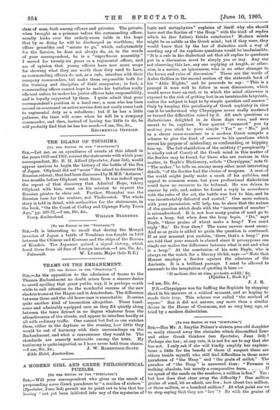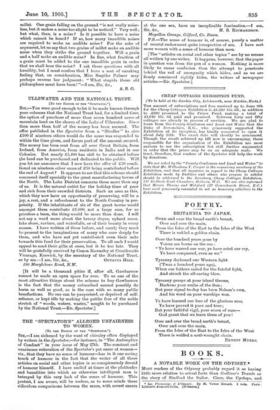[TO TIM EDITOR Or TRH "SPECTATO1I:1 SIR,—Haa Mr. A. Smythe
Palmer's sixteen-year-old daughter so easily cleared away the obstacles which discomfited Zeno and other Greek thinkers (see Spectator, June 3rd) P Perhaps she has; at any rate, it is not for me to say that she has not. I only ask if she will kindly amplify her explana- tions a little for the benefit of those (I suspect there are others beside myself) who still find difficulties in those same paradoxes of "the Heap" and "the grain of millet." The paradox of "the Heap" is answered thus : "Fewness is nothing absolute, but merely a comparative term If we speak of the sands on the seashore, a million is few." Yes ; but how does that clear away the difficulty ? One million grains of sand, let us admit, are few ; how about two million, or three million, or a hundred million ? At what point are we to stop saying that they are " few " ? So with the grains of millet. One grain falling on the ground "is not really noise- less, but it makes a noise too slight to be noticed." Very well ; but what, then, is a noise ? Is it possible to have a noise which cannot be heard? If so, how many inaudible noises are required to make an audible noise ? For the sake of argument, let us say that two grains of millet make an audible noise when they strike the ground together. Will, a grain and a half make an audible noise? In fine, what fraction of a grain meat be added to the one inaudible grain in order that we shall hear the noise? I ask these questions with all humility, but I must confess that I have a sort of sneaking feeling that, on consideration, Miss Smythe Palmer may perhaps reverse her judgment : "What stupids those old philosophers must have been! "—lam, Sir, &c.,
A. S. G.







































 Previous page
Previous page